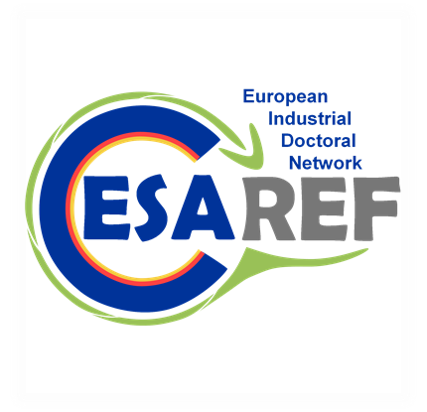Molla EWNETE visit of ELKEM Kristiansand
On 18th and 19th October 2023, Molla EWNETE and both his academic and industrial supervisors, met at the ELKEM site in Kristiansand for detailed technical discussions around the PhD. Here they had the chance to take part in both a plant visit and a lab tour. The morning was spent at Elkem’s microsilica production plant, where they had the opportunity to observe the production of microsilica. During the plant visit, four primary areas were observed; the raw material warehouse (containing Quartz and carbon source, wood chips), electric arc furnaces, primary collectors and fans and finally the bag house filter.
Microsilica, also known as fumed silica or volatilized silica, is produced when quartz is subjected to high temperature reduction to produce silicon or ferrosilicon. As quartz is heated to 2000 °C in an electric furnace, it produces volatile species of silicon monoxide gas (SiO) at it forms the metal. This gas rises and combines with additional oxygen (forming SiO2) in the upper part of the chimney stack and condenses as it cools. As a result of this condensation, spherical particles called microsilica are formed. In the filter house, microsilica is drawn through cooling pipes and a pre-collector. Filter bags can trap microsilica and allow hot air to escape. As soon as the microsilica is emptied from the bags, it is blown into a silo for storage. This is the origin of microsilica production.
Aside from plant visits, visits to refractory and oilfield labs were also possible. The refractory lab consists mainly of some experimental works such as castable mixing with different sizes of Hobart mixer, flow measurement device using flow cone to determine both self-flow value (the percentage increase in diameter after removing the cone on vibration table) and vibration flow value (the spread castable is subjected to 15 seconds of vibration and the resultant spreading is taken as vibration flow value) and strength measurement devices. The produced castables will be cured to achieve desired strength at 20 0C at a high relative humidity (RH>90%) for the desired duration, normally 24 hours. Then, the curing samples needs further drying inside oven at 110 °C. Elkem also carried out mechanical tests, called cold crushing strength (CCS) measurements, to determine the compressive loads that refractory products can withstand at room temperature before failure. Refractory castables can also be tested for bending strength at room temperature and at elevated temperatures using cold modulus rupture tests (CMOR) and hot modulus rupture tests (HMOR), respectively.
Lastly, Elkem’s oilfield laboratory has investigated high-performance products for oilfield applications, including drilling and gas production. Specifically, the lab consists of three sections: quality control, cement test (to determine the pH, water content and viscosity of cement slurries using an ofite viscometer) and standard mud test (to prepare drilling fluid for flowback testing).










